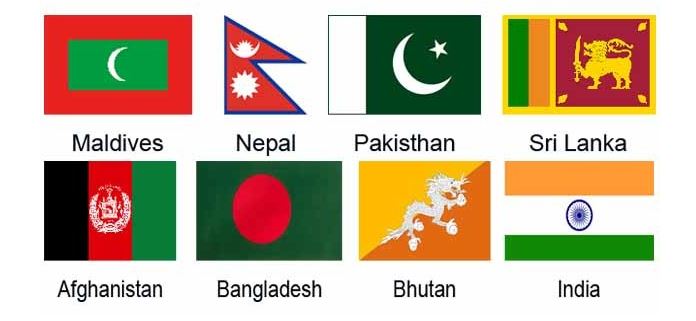Video Conference of SAARC Leaders on COVID-19 | 16 Mar 2020
Why in News
The Video Conference of South Asian Association for Regional Cooperation (SAARC) Leaders on COVID-19 was held recently.
- All the members of SAARC (India, Bangladesh, Bhutan, Nepal, Maldives, Sri Lanka, Afghanistan and Pakistan) attended the conference.
- The conference is considered as a step towards the revival of SAARC as the SAARC Summit has not taken place since 2014 because of India-Pakistan tensions.
Key Points
- COVID-19 Emergency Fund:
- India has proposed to create a COVID-19 Emergency Fund which could be based on a voluntary contribution from all SAARC members.
- Further, $10 million has been extended by India as a contribution to the fund.
- The fund can be used to meet the cost of immediate actions by any member and will be coordinated through foreign secretaries and embassies of the member countries.
- The World Health Organisation (WHO) has also constituted the COVID-19 Solidarity Response Fund with the help of corporate bodies, foundations and the UN Foundation.
- Other Proposals by India:
- India has also proposed a rapid response team of doctors and specialists, along with testing kits and other equipment for all the member countries.
- India has set up an Integrated Disease Surveillance Portal to better trace possible virus carriers and the people they contacted. India has offered to share it with member countries.
- Economic Issues and Measure:
- The conference also discussed longer-term economic consequences of COVID-19.
- The member countries have also proposed to insulate internal trade of South Asia and local value chains from its impact.
- Measures by SAARC to Manage Health Pandemics:
- It has been decided to frame and enforce the common SAARC pandemic protocols.
- The members have also decided to establish a working group of national authorities for health information, data exchange and coordination in real-time.
- It has also proposed a SAARC health ministers’ conference and the development of regional mechanisms to share disease surveillance data in real-time.
- Country-Specific Issues:
- Afghanistan has highlighted the vulnerability as it shares a long and open border with Iran, one of the worst affected countries in the world.
- The Maldives has cited the economic downturn owing to the drop in tourists inflow from Italy, China and Europe - the main source of tourists for the country and sought a South Asian response to the crisis.
- The tourism-dependent countries like Bhutan, Sri Lanka has also sighted issues related to the economic slowdown.
